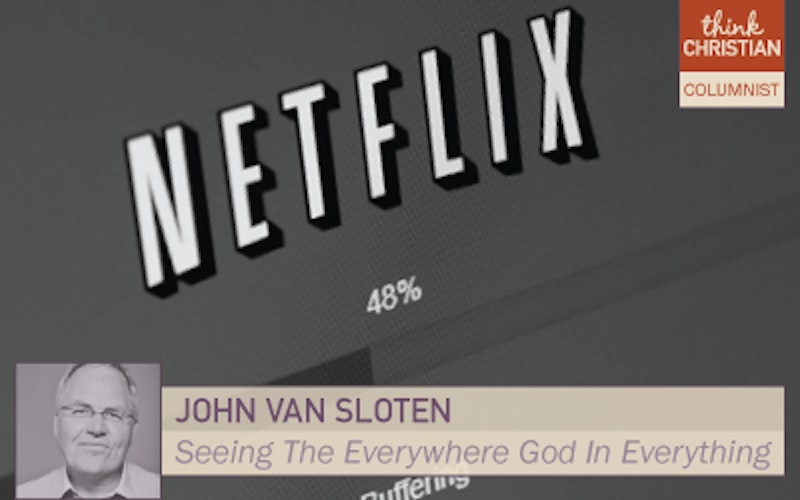
Culture At Large
Personalizing Netflix and the danger of closed systems
Netflix - along with all of the other big-data algorithms that insist on telling me what I like, want or need - is shrinking my life.
I just hit the “Personalize” button on my Netflix page and was prompted to input and rate all of the movies I’d watched in the past few years. Then, amazingly, after just a few seconds of processing, a
“Top Ten for John” list appeared. Wow. The personalize button was then replaced by a taste profile link, where I could feed Netflix’s database more detailed information about which of the 31 different moods I preferred. I didn’t want to play anymore!
They’re like consultants who borrow your watch to tell you the time. And with every bit of data I feed them (knowingly or not), my world gets smaller. It’s happening everywhere. And the more we’re fed
what we want, when we want, where we want - the more we fill ourselves with ourselves - the smaller we become.
Maybe I’m not the profiling type. Perhaps this is a good thing and does help people find what they’re looking for. But how can a closed system ever have room for the new? How will I ever hear a fresh
alternative song if I’m always listening to ’80s radio?
Sometimes I think the church is an equally closed system. Reading one book, in one way, the way it’s always been done - a faith locked in for the ages. Like entertainment consumers, we want what we want: songs we know, a language we’re already familiar with, a theology we understand, those good old stories told in the good old way. We’ve been doing it for so long that we’re unable to imagine anything new.
Like entertainment consumers, we want what we want: songs we know, a language we’re already familiar with, a theology we understand, those good old stories told in the good old way.
Instead of tuning in to a God who speaks multiple languages on multiple channels via multiple media, we’ve locked in to our favorite AM station from the 1950s, or the Azuza Street revival or the Reformation. Our preachers are experts in ancient dead languages.
In his book The Prophetic Imagination, Walter Brueggemann says that, “Prophecy begins in discerning how genuinely alternative [God] is." Later he writes, "If there is any point at which most of us are manifestly co-opted, it is in this way. We do not believe that there will be newness but only that there will be merely a moving of the pieces into new patterns." Regarding an alternative prophetic consciousness, Brueggemann writes, "We need to ask not whether it is realistic or practical or viable but whether it is imaginable."
How can we possibly imagine anything when we refuse to change the channel? And how can God be God if we limit Him to the stations, tastes and choices we’re comfortable with?
In the tradition I grew up with, I was always told that God speaks through all things, all genres and all means of created media. He speaks redwood tree, epigenetics, abstract art, ancient Greek, Arcade Fire and comic book. He speaks in the academy, the office and out in the field. His words are common and gracious, and He rains them down on all of us, all over the place.
Every time we feed the algorithm, we limit our capacity to experience and hear our genuinely alternative, ever-creative, ever-new, everywhere speaking God.
Topics: Culture At Large, Science & Technology, Technology, Arts & Leisure, Entertainment, Theology & The Church, Faith